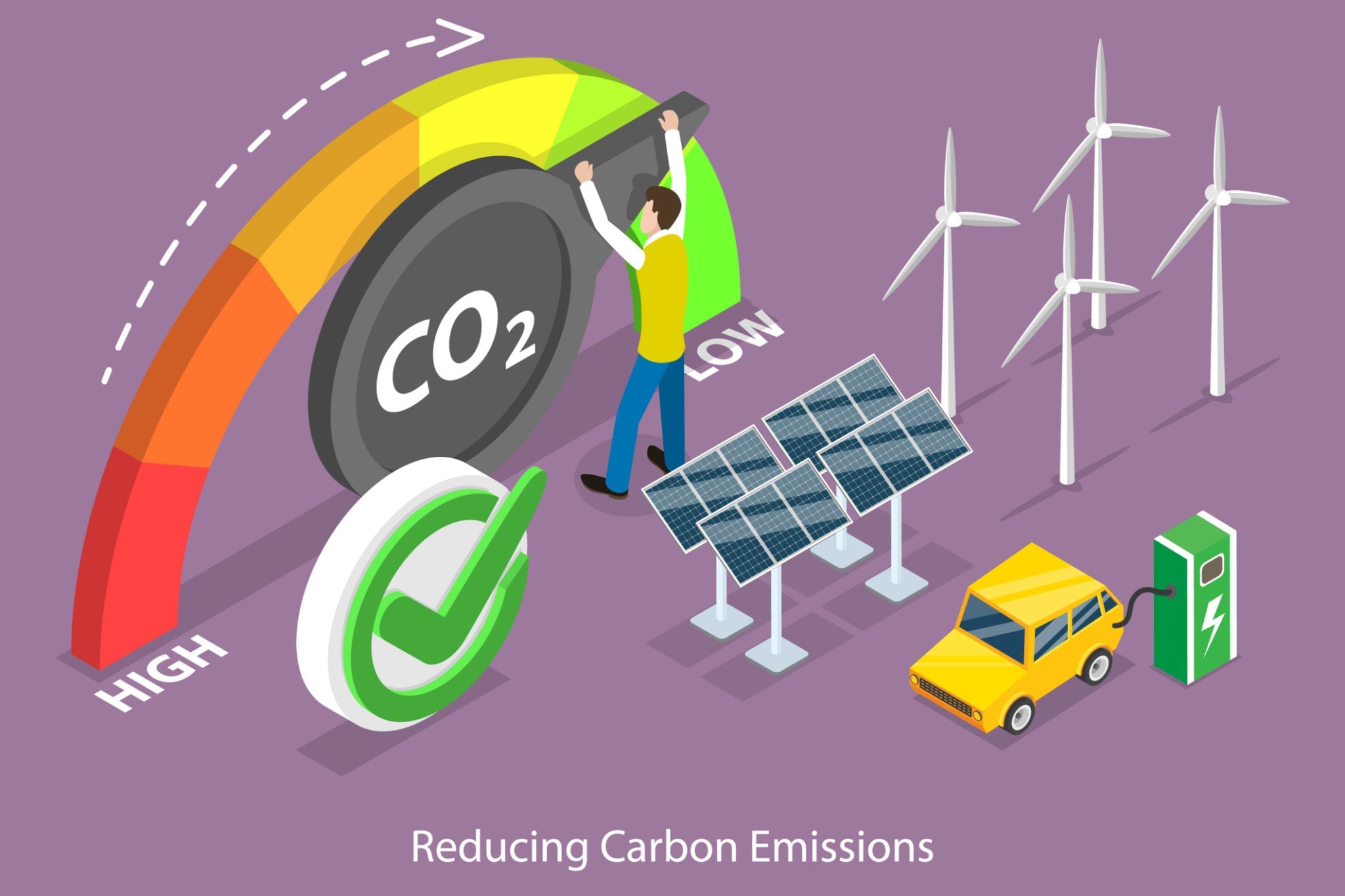Many governments and industries have set goals to achieve net-zero emissions by 2050. In Indonesia, the commitment is shown in various ways, including ending the operations of the steam power plant by 2035. Other countries are also showing efforts to cut carbon emissions.
The 2015 Paris Agreement recorded 200 countries’ pledge to cut the global average temperatures up to 2 degrees Celsius.
Before going through the importance of net-zero emission, it is important to know what it means to be net-zero emission. Net zero-emission means that there is a balance between greenhouse gases taken out and those put into the atmosphere.
A good analogy is like a bath. When you turn on the tap, the tub is filled with water but when the plug is pulled, the water flows out. To keep the water at a certain level, there has to be a balance of input and output.

How to achieve net-zero emission
There are a few feasible ways to achieve net-zero emissions:
- Electricity without Emissions
As mentioned, Indonesia is planning to stop the steam power plant by 2035. This is an effort to reduce carbon emissions. Generate electricity without emissions can be done by utilizing solar, water, nuclear, or wind power combined with advanced electrical technology. Other forms of low-carbon energy sources may come as an alternative. - Reduce the Use of Fossil Fuels
There are several areas dominated by fossil fuels such as cars, electric furnaces, and more. In the future, equipment and vehicles will turn to renewable electricity for a cleaner environment. Thus, switching to electric-powered vehicles and heaters for commercial buildings would contribute greatly to reducing the use of fossil fuels. - Bioenergy
According to IEA Bioenergy, there has been an increase in the global demand for biofuel with a recorded growth of up to 5% between 2010 and 2019. This supports the goal to achieve zero emissions by utilizing bioenergy. Bioenergy has low emissions and is perfect to fuel transportation means such as ships and planes. - Energy Efficiency
Anything that reduces energy means reducing carbon emissions. Smart technology will be useful for sensing energy consumption and sending alerts when needed. Today, energy-efficient solutions can be seen in many forms – from vehicles to buildings, from home appliances to industrial machines. The industrial sector can get the benefits of energy efficiency to reduce waste. Thus, it is necessary for industries to invest in the most efficient technology. - Behavioral Changes
Reducing carbon emission is a global effort and without the support of all citizens, it may not happen. The behavioral change affects how people use energy. Especially in labor-intensive industries, where large amounts of human resources are required behavioral changes are important to reduce global warming. From a simple thing like walking or cycling instead of using a motorcycle, it can contribute significantly to obtaining zero emissions.

Why is it important for the industry?
To tackle the challenges of climate change, net zero emission would be the best way to limit the production of carbon. It can improve public health and the economy circular while maintaining our biodiversity. However, this effort requires a huge leap in energy innovation it is still achievable.
To support zero emission carbon efforts, the Subang Smartpolitan offers a sustainable environment with smart infrastructure to accommodate major industries. With an integrated management system, the township has utilized a smart environment and facilities necessary to reduce carbon emissions and create a better living.
Indonesia as the Most Lucrative Automotive Market in Southeast Asia – Suryacipta

